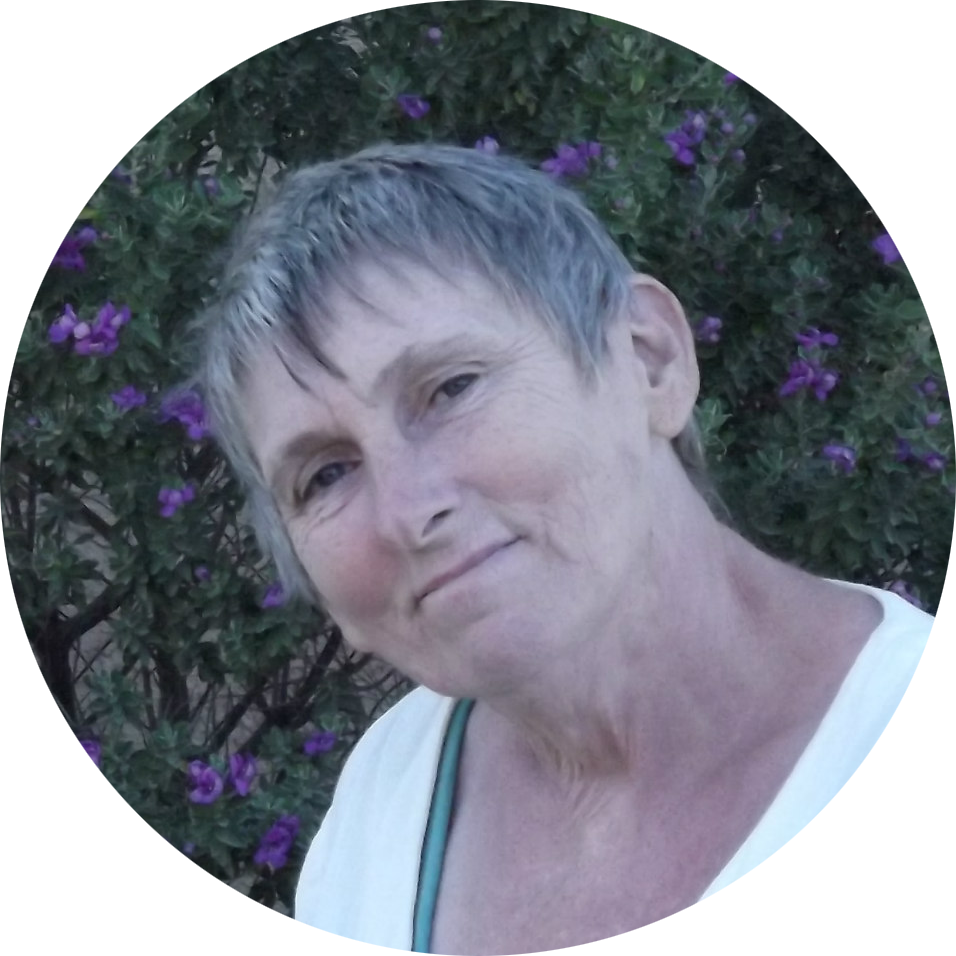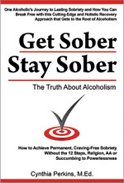Alternatives for Alcoholism
Have you tried the traditional treatment path for alcoholism without success? Are AA and the 12 Steps just not working for you? You're not alone.
The truth is that the majority of people who seek traditional rehabilitation treatment and attend Alcoholics Anonymous do not succeed in long-term sobriety. Yes, there is that handful of people who do, but they are the minority. Most alcoholics die from their condition in one way or another (suicide, fatal accidents, cirrhosis or other alcohol-related health conditions.)
The majority of people who do manage to stay sober, do so with a great deal of struggle and suffering. They continue to fight cravings to drink constantly and endure many physical and emotional symptoms such as depression, irritability, mood swings, and anxiety. One must question whether this truly fulfills the criteria of recovery.
Enoch Gordis, M.D., director of the National Institute on Alcohol Abuse and Alcoholism, has been quoted as saying, "the treatment of alcoholism has not improved in any important way in twenty-five years… Only a minority of patients who enter treatment are helped to long-term recovery."
One study that followed 922 alcoholic men after treatment found that only 7 percent of them were still sober four years later. Other estimates for success in long-term recovery (defined as more than 5 years of sobriety) are somewhere between 2 and 5 percent.
Fortunately, there are alternatives for alcoholism that are much more effective and can significantly increase your chances of being successful.
Alcoholism is a Brain Disorder
The reason the success rate for sobriety is so low and alcohol addiction continues to be a very serious and rapidly growing problem in our society is because there is a flaw in the traditional treatment approach. They are missing a very big and important piece of the puzzle.
Science tells us that alcoholism is not a spiritual disease, lack of will power, a personality disorder, or a mental illness. Yes, it does impact an individual on the spiritual and psychological levels in a profound way, and alter the personality, but the root of alcoholism is in biochemistry.
The National Institute on Drug Abuse defines the addiction to any substance (which would include alcohol) "as a chronic, relapsing brain disease that is characterized by compulsive drug seeking and use, despite harmful consequences. It is considered a brain disease because drugs change the brain; they change its structure and how it works. These brain changes can be long lasting and can lead to many harmful, often self-destructive, behaviors."
Put in other words, alcohol (and all other psychotropic substances) impair the production, release, and reuptake of neurotransmitters in the brain. This impairment then leads to cravings for alcohol or other psychotropic substances. The goal in recovering from alcoholism, or any other addictive substance, is to restore balance to brain chemistry.
Addiction to alcohol is not caused by a defect in character, but rather it is an imbalance of neurotransmitters in the brain caused by alcohol itself (or other mind-altering substances), allergy, nutritional deficiencies, poor diet, environmental toxins, and other biochemical imbalances that can be corrected.
There's certainly nothing wrong with building better character, and we should all aspire to work on this issue, but it is not likely to keep one sober if they do not also repair their addictive brain chemistry.
You Are Not Powerless Over Alcohol
Feelings of powerlessness occur because impaired brain chemistry is directing your choices and actions. It is the impairment in brain chemistry that compels you to pick up the next drink or seek out other addictive substances. The more severe the impairment to brain chemistry the more powerless you become. If you restore balance to brain chemistry, then you are no longer powerless. The drive to drink will disappear and you regain your power.
You can achieve successful life-long sobriety, eliminate cravings completely, and avoid relapse by restoring balance to the neurotransmitters in your brain through a holistic approach that addresses the biochemical, the psychological, and the spiritual with a combination of diet, nutrition, and changes in lifestyle.
No More Cravings - No More Relapse
When you restore balance to brain chemistry, cravings for alcohol (or other drugs of choice) simply disappear and relapse is not a threat.
I'm Cynthia Perkins, M.Ed., and I have more than 35 years of uninterrupted and craving-free sobriety using the alternatives I speak of on this site. I'm also a trained mental health professional. I have not attended an AA meeting since 1990.
I do not ever experience cravings to drink or drug. I am no longer crippled by the anxiety, depression, and mood swings that usually accompany recovery.
On this site, I will show you how you can achieve this success and why traditional rehabilitation centers and AA are so ineffective. I'll present you with a proven, science-based, and successful approach for what you need to get sober, prevent cravings, and avoid relapse.
If you're already convinced and would like to get started on the road to recovery right away, then take a look at my Clean and Sober for Life Program or browse the site to learn more.
References
Joan Mathews Larson. Seven Weeks to Sobriety.
Dr. Charles Gant. End Your Addiction Now.
National Institute on Drug Abuse.


